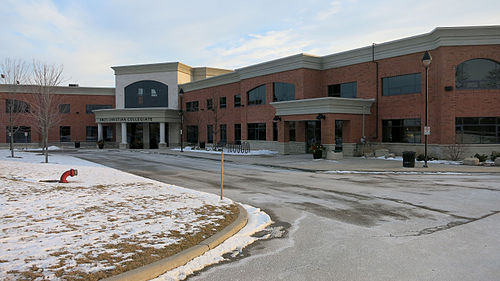
It should be no surprise that universities have learned over time that a mark from one high school is not equivalent to one from another one. A recent article in the Toronto Star flags Waterloo's engineering programme, one of the toughest to get into in Canada, as having developed an adjustment factor. Among those whose marks the programme discounts the most were two Oakville schools: King's Christian Collegiate and St. Thomas Aquinas Catholic Secondary School. Shockingly, Toronto's prestigious Upper Canada College also found itself singled out as needing a significant mark discount when evaluating applications.

Back in the 1960s, when the boomers who shaped the current Ontario were in high school, about 3% of students became Ontario scholars. Now it's more than 60%. Kids may be smarter, and teaching may be better, but it is not believable that students leaving high school are that much more able. Clearly, good marks are much easier to get than they used to be, and in some schools more than others.
Higher marks cause a lot of problems. It becomes very difficult to distinguish between the best students when there are so many of them. Perhaps even worse, students are led to believe they are more prepared than they actually are and face sometimes substantial and life-changing disappointment when they arrive in post-secondary education.
This recent Maclean's article gives an insight into what this can mean to students facing the reality of post-secondary standards, some of whom determine they should not have been in the institution in the first place. Nevertheless, universities and colleges can simply raise their admission standards, and that is what they have done as mark inflation has run rampant across Ontario.
However, when that inflation is uneven from one school to another, it makes the post-secondary institutions' job much more difficult. According to the Star's article, Waterloo has developed its adjustment factor based on the performance of students from a given school in the first year of their engineering programme over time. It has to have enough students to make the comparison meaningful and establish a pattern.
Until the 1960s, province-wide exams, known as "departmentals," contributed to the high school leaving marks of Ontario students. They were graded anonymously, after being shipped to Toronto, by teachers other than those who had taught the students.
While Scholastic Aptitude Tests (now simply called SATs) in the United States assessed ability to learn, the departmental exams assessed achievement, which high school graduation marks generally represent. These exams were similar to Advanced-level (A-level) exams in England, or Baccalauréat exams in France, which continue to exist (as in most European countries), and in those countries produce 100% of the marks given to universities and colleges for admission. (The International Baccalaureate (IB) works on these principles and is available in Ontario. Many top international universities have greater confidence in such evaluations than in marks assigned by schools with which they have little or no experience.)
These exams are country-wide. All teachers in all schools, including parents homeschooling children, know that they are going to face these tests. This eliminates grade inflation in earlier years and in mid-year evaluation: grades that do not truly represent the student's potential will be found out in the end. Virtually every country has them except Canada: even the United States has the SAT to help post-secondary institutions compare students' capabilities regardless of the school they attended.
The arguments against such exams are many. Students face a lot of pressure, and their future is determined by their performance in a series of three hour written exams. Such exams favour visual learners and can close the door for able students whose abilities are different. There are concerns about "teaching to the test", limiting teachers' abilities to explore topics and problem-solving techniques. Proponents point out that at some stage there will be such an evaluation to graduate from university or to gain a professional qualification, and delaying it serves no purpose. Further, they point to the evils of grade inflation which has obviously run rampant in Ontario since such exams were abandoned.
The now-abandoned departmental exam system in Ontario represented a compromise compared to the all-or-nothing approach in most other countries. A student's teacher in each subject put forward a mark for the student that was based on their assessment of the student's performance in school: tests, essays, in-class performance, assignments and projects of all types. This "recommended mark" was averaged with the student's performance on the exam: the student received the mark from that calculation or the mark achieved in the externally administered departmental exam, whichever was better. The result was that students whose exam performance was poor were not as penalized for that as in European systems. Nevertheless, the exam served as a province-wide leveller. It ensured that a student's preparation for university or college was assessed uniformly. Before the elimination of these exams, universities did not have to apply discounts based on the marking standards at different schools. Another advantage was that schools' performance could be credibly compared.
There was a cost to administering these exams. The content had to be developed and approved. Teachers had to be recruited and paid to mark the exams, which took place at the end of the school leaving year (then Grade 13) so that the results could be made available quickly for post-secondary institutions to make their admissions decisions.
Do the advantages outweigh the costs? Do you agree with the author of this 2007 Globe and Mail article that the elimination of the exams was a mistake and they should be reinstated? More than 50 years ago Ontario abandoned province-wide exams. Is it time to reconsider?